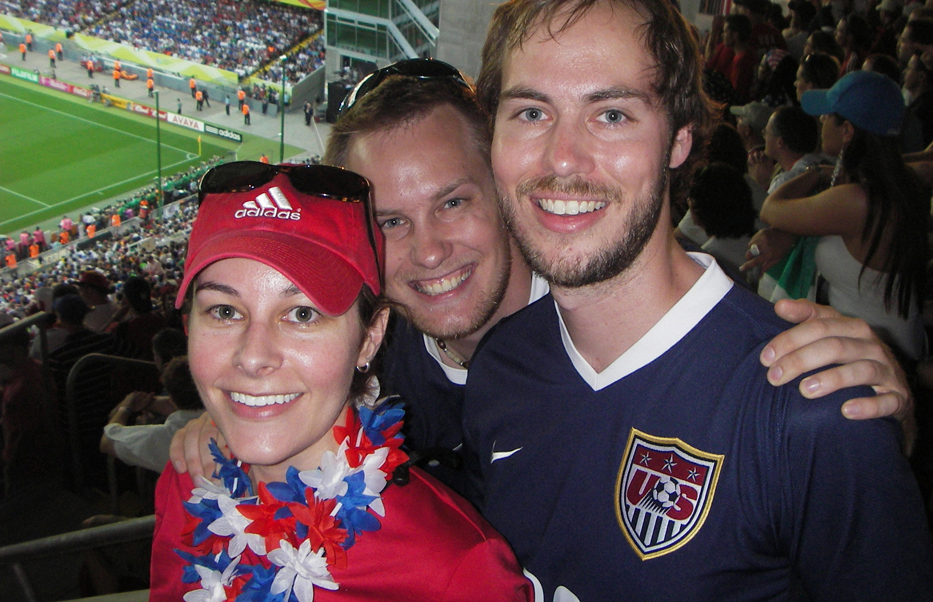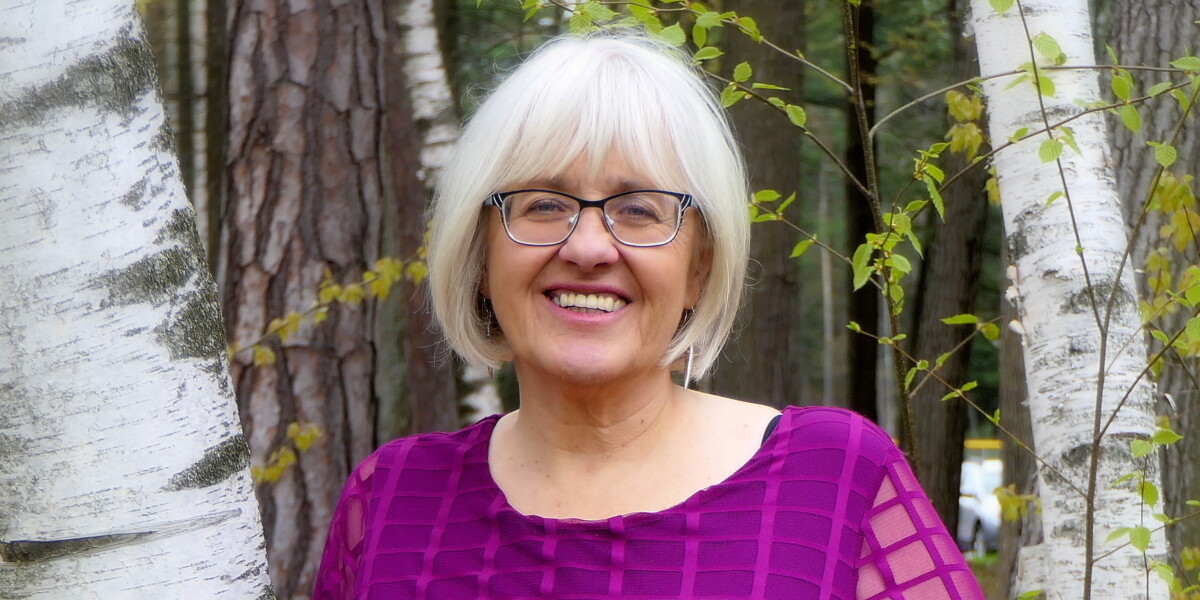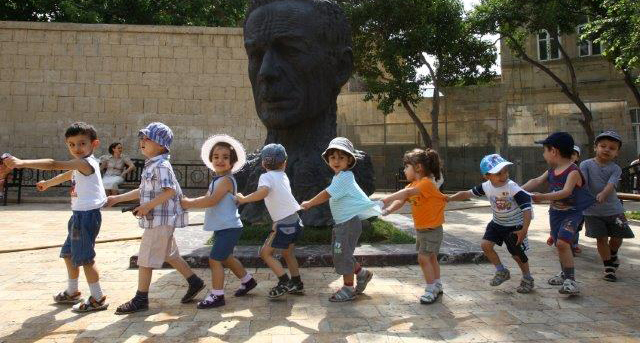When Travis Kiviranna first attended the World Cup 20 years ago, he had no idea the impact it would have on his life. What started as a casual trip to watch a game turned into a family tradition involving travel around the world. Now, Kiviranna, Operations Manager for Continuing and Distance Education at the University of Vermont, is headed to the games in Brazil to watch the 2014 FIFA World Cup.
In 1994, he got his first taste for the World Cup stadium atmosphere when Bulgaria beat Mexico at the Meadowlands in a heated penalty kick shootout to finish a Round of 16 match (in knockout stage). He remembers the cheering crowds and the eruption of energy. While attending his sixth consecutive World Cup tournament this month, Kiviranna will cheer for the U.S. National Team as they vie for the championship on Brazilian turf.
A Passion for Soccer
Growing up near the National Soccer Hall of Fame in New York, soccer has always been an interest for Kiviranna. He played the sport as a child and throughout high school and college, and even took on side gigs as an intern at the Hall of Fame. He was also a referee for youth and intramural games, and a JV soccer high school coach.
Soccer made its real impact though when Kiviranna began traveling with his brother, Vance, to the World Cup. Since their first trip to the World Cup, they’ve traveled every four years to see the games in Europe, Africa, and Asia. “Soccer is the same game no matter where it’s played. In the stadium, the atmosphere of the game depends on who is on the field and their fans,” he says. The build-up to the games and the international camaraderie make the experience even more engaging.
Having seen the game on four continents, and now venturing to a fifth, Kiviranna has witnessed the global reach of soccer. “The people celebrate differently around the world – with song, drums or costumes, and it’s really incredible to see,” he says.
Describing the pageantry and the home pride in each location, he shared that it’s an incredibly global and equalizing experience. “In the stadium, it’s a mash-up of people from everywhere, so you get this festival-like atmosphere,” he says. “It doesn’t matter that people have different political views. We all just come together and share our love for the game.”
Gaining a Global Education
Going to see the games is just one part of the experience. “We always make a point of doing side trips. We’ve had some really incredible experiences by taking advice from fellow travelers or learning from locals,” he recalls. “In South Africa, we wanted to go on safari, so we took our little rental car into Kruger National Park and we were almost trampled by elephants.” Another time, they bought a roasted field mouse that a young boy had sold them as a snack. Not surprisingly, “It tasted like chicken.” These adventures and experiences have had a lasting impact on him and have added meaning to the family tradition.
He’s learned not just about the host countries and the people he’s met, but also about himself and his relationship with his brother. “When you’re traveling with people it can be challenging. You get tired or hungry and you have to work through it,” he says.
Travel also has a way of helping you to find your core and develop inner resiliency. “It’s humbling being far away from home with everything you need to survive in your backpack.”
After a few trips to see the games, the brothers now know how they like to travel. “We plan a few nights in one place and then we learn from other travelers or ask locals where to go. We always make friends along the way,” he says. While they haven’t planned any specific excursions yet for Brazil, hiking is always a must. “Some of my best memories have been from hiking in the host country. In South Korea we hiked Mt. Halla, a dormant volcano on the island of Jeju and in South Africa we hiked the Drakensberg mountains in the snow, which was amazing,” he adds.
Community and Culture
Kiviranna likes to see how the games bring people together. The cultural interactions at the stadium, the cultural flare that’s expressed, and the conversations shared with people at the games are so valuable. He’s also enjoyed the opportunity to get outside of the host city, even spending the night at a Buddhist temple in South Korea, and learning what it’s like to live in each place.
Describing the World Cup experience, he said, “It’s not just about the soccer. That’s just what brings people together. It’s about the cultural interactions and the learning that takes place between people,” he says.
While the media can sometimes create a hype around safety and the host country’s readiness for the games, Kiviranna explains that the World Cup can have a meaningful impact on the people when the host country invests in infrastructure and makes improvements that will benefit the country for years. “Thoughtful improvements to local infrastructure make the World Cup a really positive experience with lasting benefits,” he says. “The games also help the country to build national pride and grow a love for the game of soccer.”
According to Kiviranna, soccer (the game that most of the world refers to as “football”) is such “a global game because it just requires a ball and a good attitude. You can play it on grass, on dirt, in a parking lot… with or without shoes. It’s just a simple game and it brings people together.”
Now a strong family tradition, the Kiviranna brothers will venture to South America to cheer for the USA in Brazil. (Gooooooooooooal!)





